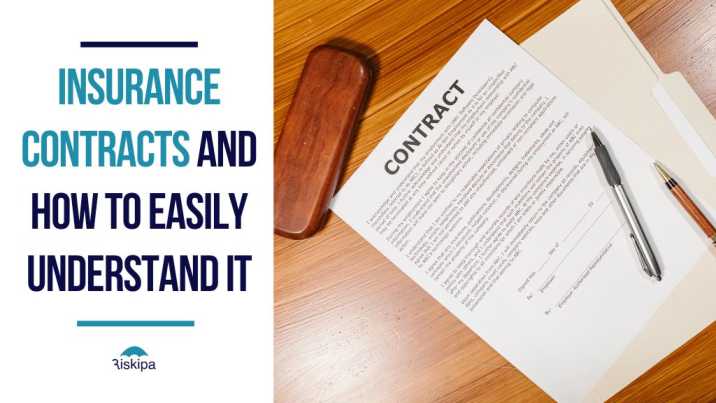
This post’s objective is to provide a detailed overview of insurance, by exploring its definition, several types of policies, and factors to note when taking it out.
In simpler terms, insurance serves as a safety net, giving financial reimbursement or assistance in the cause of unexpected events, such as injuries, illness, accidents, natural calamities, or property damage. However, having a solid understanding of its basics is essential for making well-tailored decisions about coverage choices, premiums, and deductibles.
What is Insurance?
Insurance is a legal agreement between an insurer and an insured or policyholder (i.e.individual), whereby the individual receives financial security from the insurer for the losses he/she may suffer under certain situations.
Under an insurance policy, the Policyholder will have to pay a certain fee called premiums to the insurer.
Furthermore, the insurer in return offers an agreed-upon fee to the insured in the event of unforeseen circumstances such as death, injury to the insured, or damages to his property.
In essence, Insurance is a way to manage your risk.
Read Also: 10 Most Affordable Special Event Liability Insurance Companies in Canada
Understanding Insurance Policy
An insurance policy is a written agreement between the insured (the individual or firm that gets the policy) and the insurer).
Note that the policyholder is not necessarily the insured. An individual or firm may get a policy thus, making them the policyholder that offers security to another individual or body (who is the insured).
For instance, when an organization takes out life insurance for a worker, the worker is the insured, and the organization is the policyholder.
What are the Common Types of Insurance?
Although there are various types available, here are the common ones:
Health Insurance:
This insurance helps you settle medical bills such as doctor fees and sometimes prescription drugs. With health insurance coverage, you and your health insurer each agree to pay a portion of your health expenses — usually a specific dollar or percentage of the charges.
Life Insurance:
This pays a beneficiary you choose a certain fee when you die. The essence of the money from this policy is to help your loved ones pay bills and settle living expenses.
There are different forms of life insurance:
- Term and,
- Whole.
- Term: This offers a benefit only if the insured person dies during the policy term period (usually from 1 to 30 years).
- Whole: This gives a benefit whenever the insured person dies.
Disability Insurance:
This type of insurance offers security to individuals and their families from financial burdens in situations where illness or injury prevents them from earning a living. Additionally, some employers give some kind of disability coverage to workers, or you can decide to take out an individual disability policy.
Other types of insurance include Wedding, Auto, Tenant, Liability, etc.
Read Also: 10 Best Special Event Liability Insurance Companies in Alberta
Common Mistakes to Avoid
1) Underestimating Insurance Needs
One of the common mistakes people make is underestimating their insurance needs. However, it is essential to take the time to evaluate the value of your properties or the potential risks you encounter before purchasing. Also, ensure your coverage efficiently protects you and your possessions. Otherwise, you might find yourself in a challenging situation when the unplanned happens.
2) Disregarding Policy Details
It is encouraged to take the time to study the terms and conditions, coverage restrictions, and any limitations of a policy. Perusing the policy fine print isn’t an exciting thing to do, but it can save you from any unexpected strikes later on.
3) Failure to Review and Update Policies
Reviewing and updating your policies regularly will make sure you get the necessary protection you seek.
Conclusion
Ultimately, insurance is a valuable tool for managing uncertainties and securing a more secure future. However, before taking out any policy, it is encouraged to carry out your due diligence by gathering enough information about the policy and asking questions whenever you feel lost.
Editor’s Recommendations:
 Colors
Colors 








